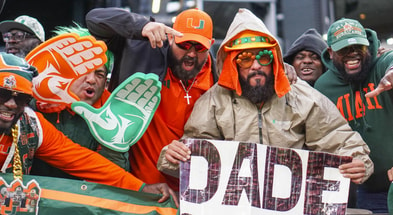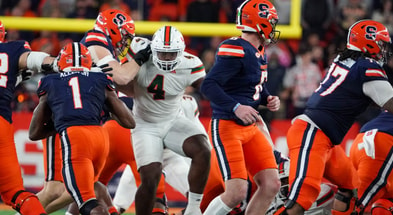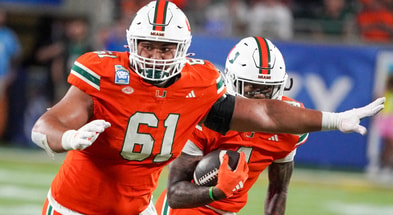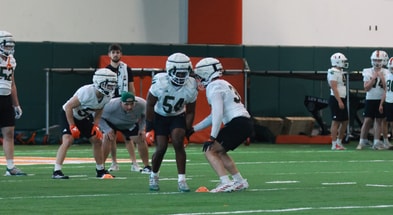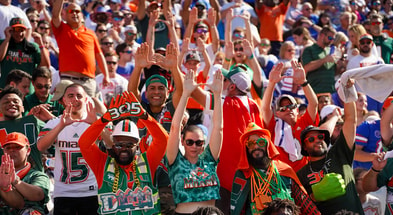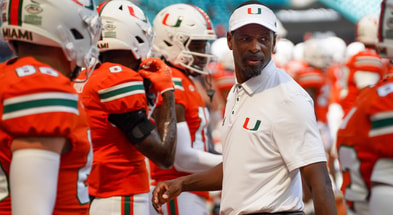CaneSport's Inside The Lines: The Dan Radakovich Interview Part 2

CaneSport’s Inside The Lines: The Dan Radakovich Interview Part 1
ESPN remains the dominant player in college football because the four-letter network controls the purse strings. And a lot of that money has obviously been directed toward the SEC. The SEC signed a new $300 million deal with ESPN that gives the network rights to all SEC football games starting in 2024 and is expected to bump the conference’s annual distribution to its members to about $68 million. That was before Texas and Oklahoma are factored in.
That contrasts with the estimated $17 million received every year by each member school in the ACC. That’s the worst TV deal of all the Power 5 conferences. The Big 10 for example earns about $31.4 million. Pac-12 schools receive about $21 million annually.
Yesterday we presented Part 1 of our interview with Miami Athletic Director Dan Radakovich which covered why he chose to come to Miami, why the timing was right now, and Miami’s plans for new facilities. Click here if you want to watch that segment.
Today in Part 2 (watch above), Publisher Gary Ferman discusses the money being controlled by ESPN and whether the network has an obligation to maintain financial parity in college football. How will the ACC create more TV value? What do the proposed new ACC schedule models mean for Miami? And the discussion also extends to the possibility of a 12-team playoff that would be lucrative for all schools.
Top 10
- 1Breaking
Pop Isaacs
Creighton guard commits to Houston
- 2
Final AP Poll
Basketball Top 25 released
- 3Hot
Way-Too-Early Top 25
Looking ahead to 2025-26 hoops
- 4
Nick Saban
Nominated for Emmy
- 5Trending
Hailey Van Lith
Stuns as SI Swimsuit cover model
Get the On3 Top 10 to your inbox every morning
By clicking "Subscribe to Newsletter", I agree to On3's Privacy Notice, Terms, and use of my personal information described therein.
Some highlights.
ON THE ACC TV DEAL WITH ESPN: “There was a contract that was signed. And that’s what that’s what they’re going by. Do they have an obligation? No, because they’re in business to make money. So now they have a very favorable deal from what the rights fees are for the ACC versus maybe what, what they could make with other leagues or not have to pay additional revenues to the ACC. But we’re going to talk to them. We do have opportunities to have good candid television conversations with them and that’s what we’re going to try to do.”
ON THE NEW SCHEDULING MODEL AS A PART OF THE SOLUTION: “I think that one of the things we’re looking at is a different scheduling model. From a football perspective, and I will say that all of these conversations are football centric, we’re looking at the possibility of moving to a single division and create a different a game schedule where the student athletes will get to see everybody in the league twice during their time period in the league. And also some of the really good rivalries that maybe didn’t happen because of the two permanent opponents in the rotation you know, with the Atlantic and Coastal, will happen more often. “






